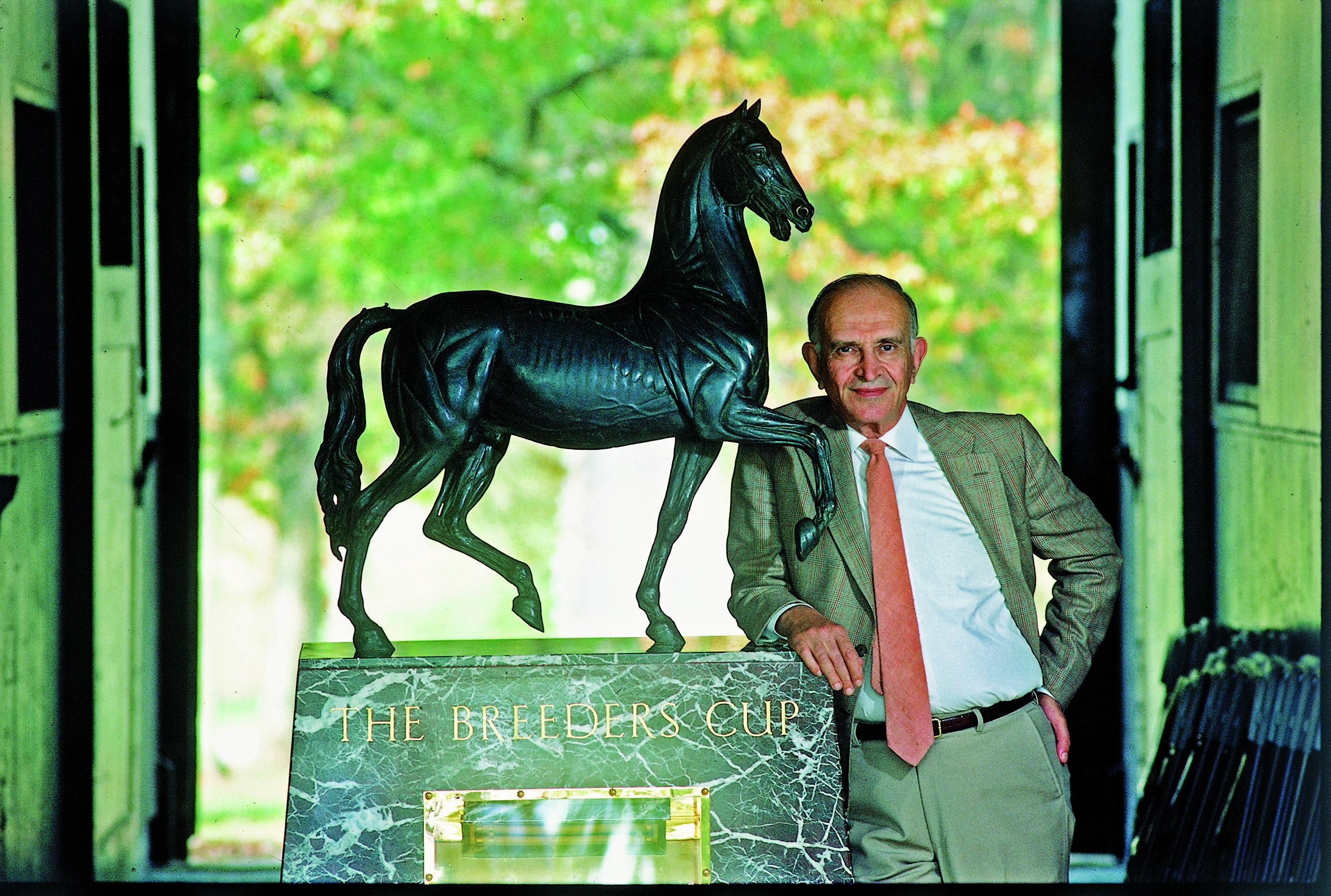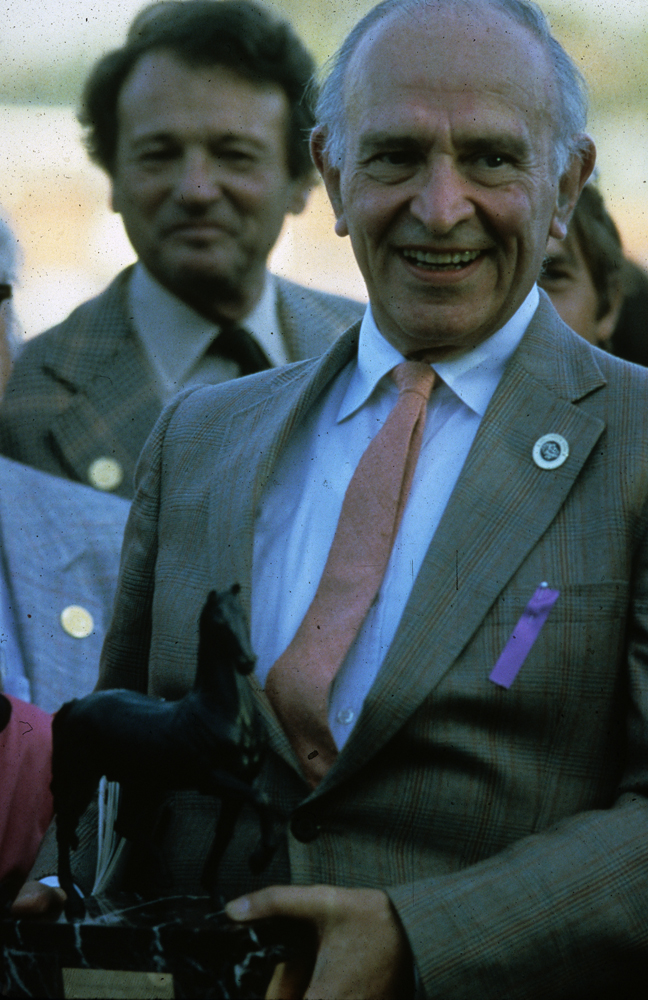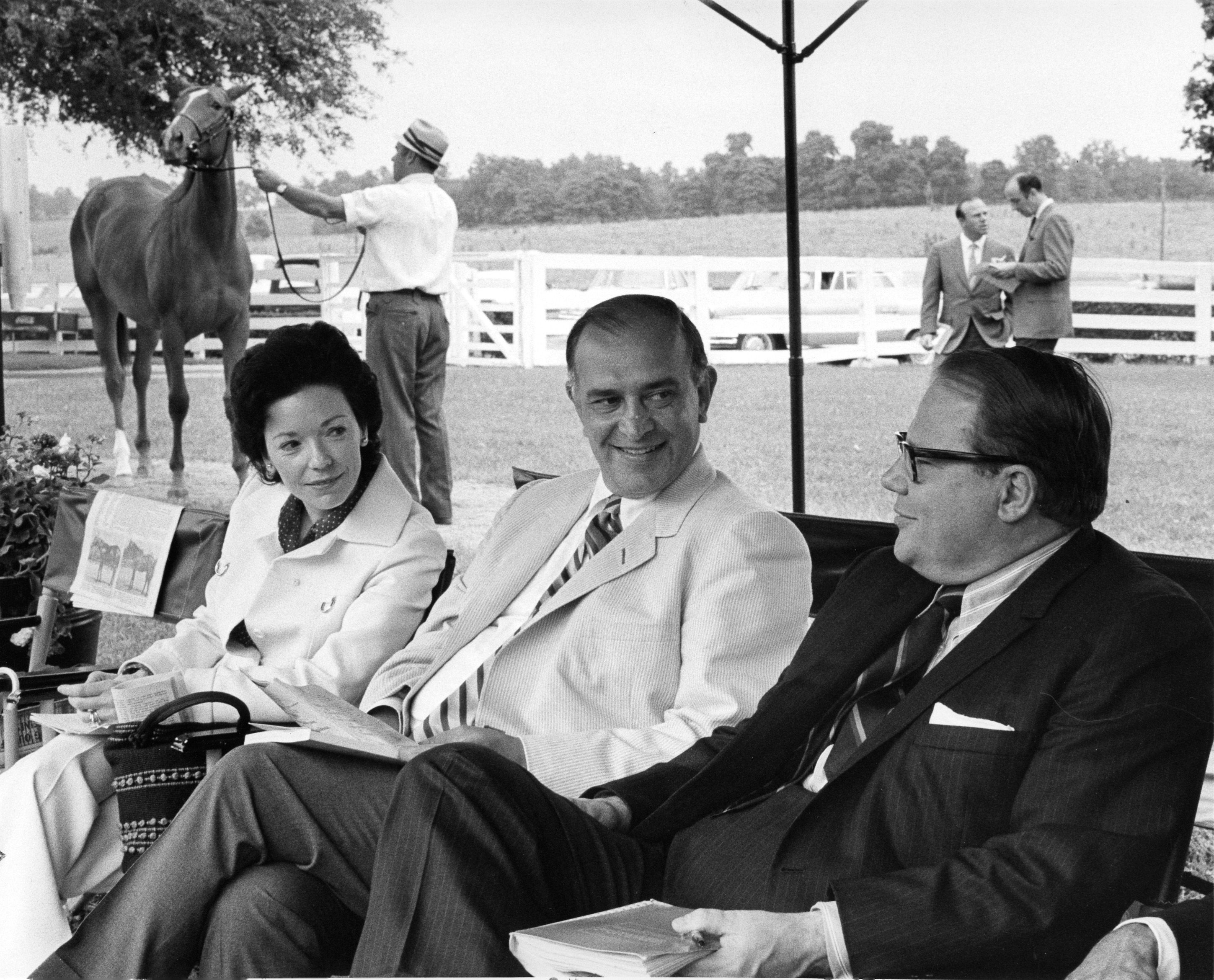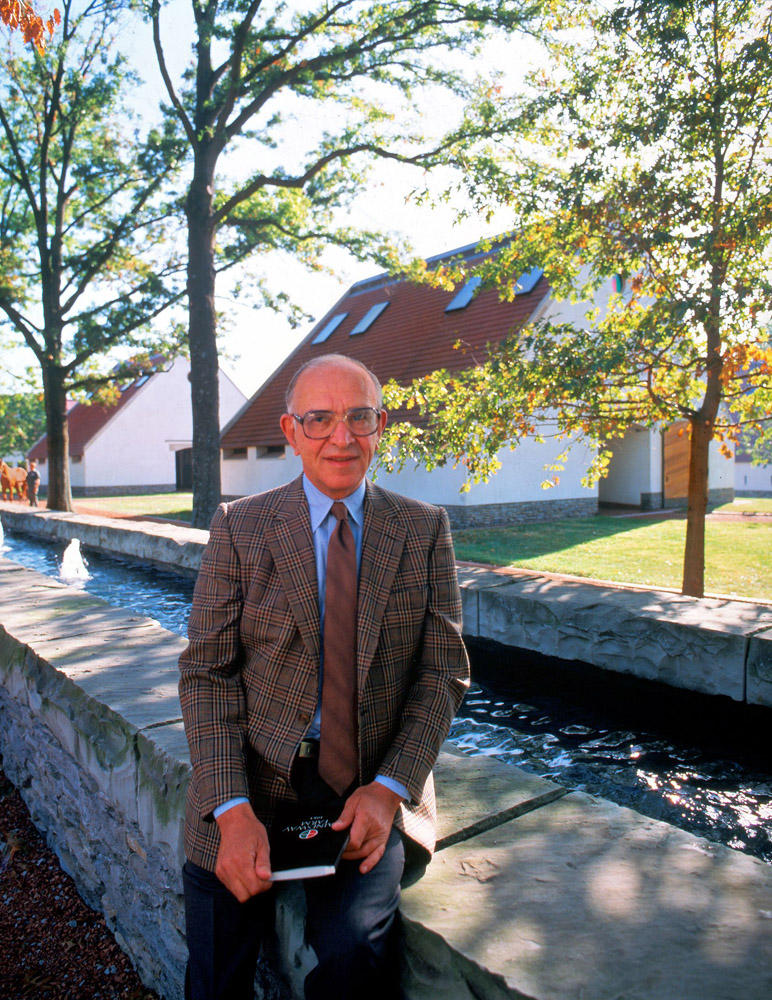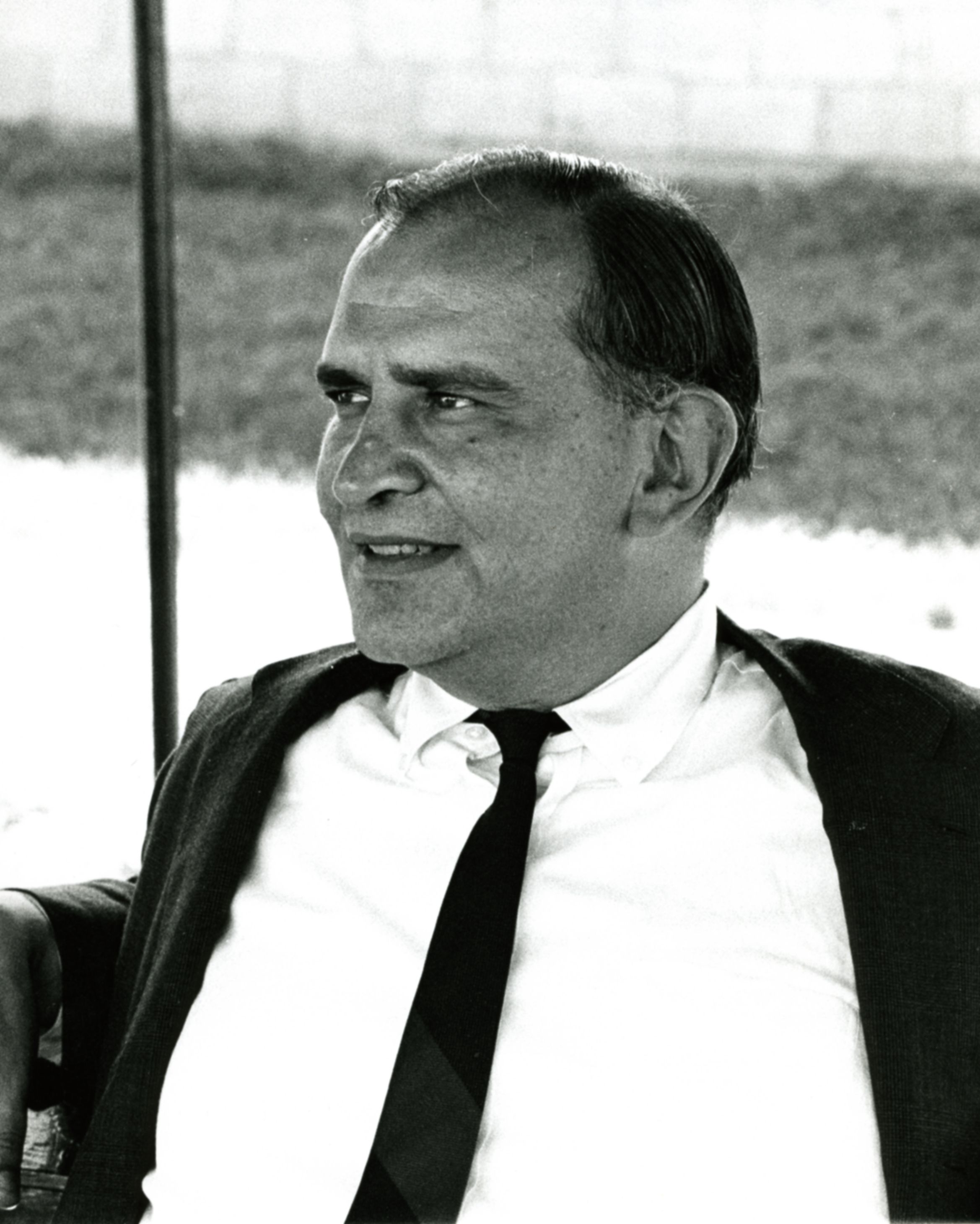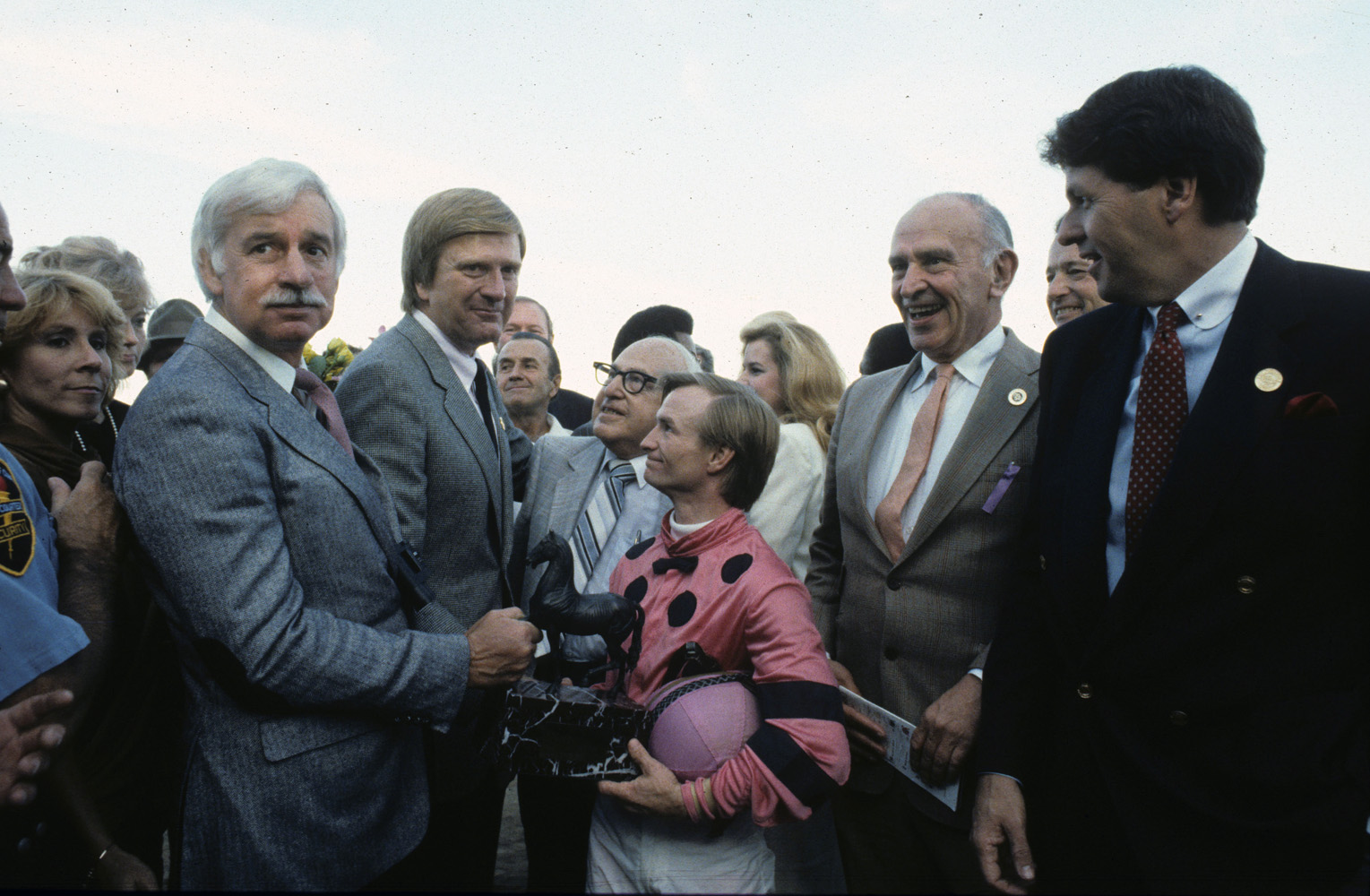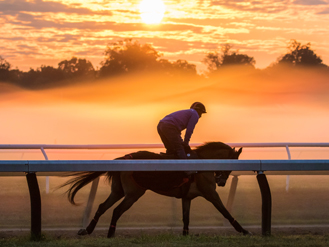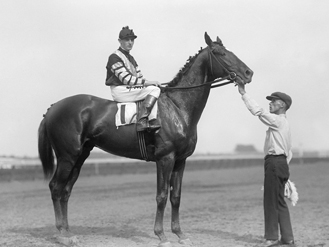John R. Gaines
Of all the praises directed to the memory of John R. Gaines after his death in 2005, one of the most cogent was from Ted Bassett, whose many roles in the industry included serving as president of the Breeders’ Cup organization: “Beyond his well-known contributions to the industry — Gainesway Farm, Breeders’ Cup, National Thoroughbred Racing Association — the mark of the man for those who knew him will always be his intellectual curiosity, his deep appreciation of the arts, and his willingness to challenge the status quo.”
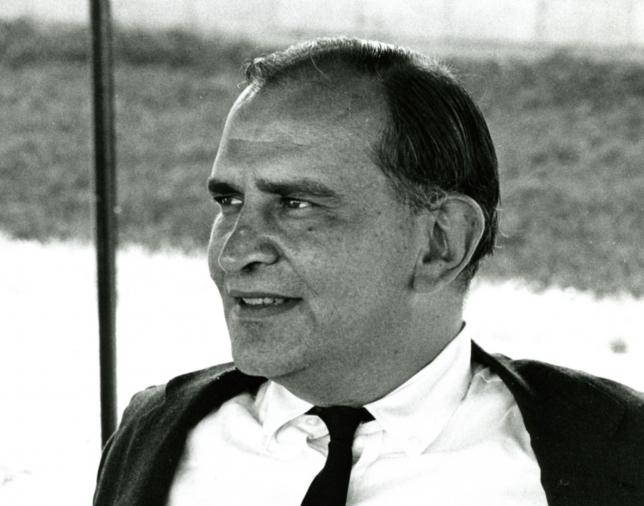
2018
Nov. 22, 1928, Sherburne, New York
Feb. 11, 2005, Lexington, Kentucky
Biography
Of all the praises directed to the memory of John R. Gaines after his death in 2005, one of the most cogent was from Ted Bassett, whose many roles in the industry included serving as president of the Breeders’ Cup organization: “Beyond his well-known contributions to the industry — Gainesway Farm, Breeders’ Cup, National Thoroughbred Racing Association — the mark of the man for those who knew him will always be his intellectual curiosity, his deep appreciation of the arts, and his willingness to challenge the status quo.”
Another comment is compelling not only in its wording, but its source — John Magnier, head of the Coolmore/Ashford operation whose record in classic races and the breeding sphere is renowned worldwide today said, “John Gaines was probably the greatest independent thinker in the bloodstock business in modern times. Highly intelligent, articulate, and possessed with great business acumen, he was very generous with his advice, which was always well worth heeding. And he had a unique ability to think outside the box.”
Gaines’ role in creation of the Breeders’ Cup is the contribution to racing for which he is most remembered, but Gaines already had a history of achievements based on his unique vision and brave willingness to promulgate change well before the advent of the Cup. He was born into racing, albeit harness racing, and he converted his grandfather’s and father’s traditions by establishing Gainesway’s thoroughbred operation near Keeneland in Lexington, Kentucky, in the early 1960s. He later moved the operation to another Lexington locale, occupying a portion of the former C. V. Whitney Farm, which he had purchased.
The age of syndication was in full swing, but Gaines added the twist of syndicating top stallion prospects from Europe. The fact that Gainesway was standing the likes of Vaguely Noble, Blushing Groom, Lyphard, Riverman, Green Dancer, and Sharpen Up had various ramifications. First, since such horses had won classic and other Group 1 European races, European breeders seeking the best blood for their own nations’ racing were attracted to Gainesway. Second, American-bred yearlings with such fashionable European blood brought the world’s top international buyers to American auctions. With Northern Dancer and later Nijinsky II also standing in the United States, Gainesway’s stallion roster became a magnet for buyers, which heightened the importance of American sales.
Gaines’ drive to convince myriad members of the industry to buy into the idea of the Breeders’ Cup was born of the idea of establishing a sort of Super Bowl for the sport. In the early 1980s, he envisioned an event that would be compelling to the racing professionals and established fans and beguiling to portions of the public which were indifferent to or barely interested in the sport. The idea was funded by contributed income from stallion seasons and foal fees and needed the buy-in of numerous tracks of the size and prestige to stage the event — although those tracks knew they would have to wait their turns.
The first Breeders’ Cup program was run at Hollywood Park in 1984, seven races with purses totaling $10 million. Gaines’ style of muscular leadership was not compatible with his running the day-to-day operation, so the Breeders’ Cup board reached out to D. G. Van Clief, Bassett, and others to be the faces of the enterprise with Gaines backing them up as the founding image.
Gaines was also instrumental in pushing for the creation of the Kentucky Horse Park as its founding chairman. The state-supported venue opened in 1978 and soon became an increasing presence in the aura of the horse as a bedrock connection to the state. The annual Rolex Three Day Event, polo tournaments, the Parade of Champions of various breeds and, in 2010, the World Equestrian Games, have been among events conducted at the Horse Park. Meanwhile, the Horse Park’s International Museum of the Horse has featured distinguished international exhibitions.
Other aspects of Gaines’ impact on the thoroughbred world included his service on the founding boards of the Maxwell Gluck Center for Equine Research and the forerunner of the National Thoroughbred Racing Association.
For most of his career, Gaines personally maintained a relatively small band of his own mares, but he stressed quality. One of his best was Cosmah, from which he bred high-priced sale yearlings. Cosmah’s 1969 colt by Hail to Reason was Halo, who had a distinguished career at stud, siring the Kentucky Derby winners Sunny’s Halo and Sunday Silence. Alone or in numerous partnerships, Gaines bred 48 stakes winners. His stallions, of course, sired hundreds. In addition to those with international backgrounds, another of many major Gainesway stallions was Bold Bidder, which was acquired by Gaines in partnership with John M. Olin and John W. Hanes. Bold Bidder sired Kentucky Derby winners Cannonade and Spectacular Bid, the latter Horse of the Year in 1979 and a Hall of Fame inductee in 1982.
Gaines was voted many honors, including the Eclipse Award of Merit, Breeders’ Cup Special Award, Joe Palmer Award, Jockeys’ Guild Award, John A. Morris Award, and the John W. Galbreath Award. That European horsemen appreciated his influence on international racing and breeding was evidenced by his receiving the Lord Derby Award and the Duke of Devonshire Award.
Gaines died on Feb. 11, 2005 at the age of 76.
Achievements
Eclipse Award of Merit — 1984
Other Highlights
Founder of the Breeders' Cup
Bred 48 stakes winners
Media
